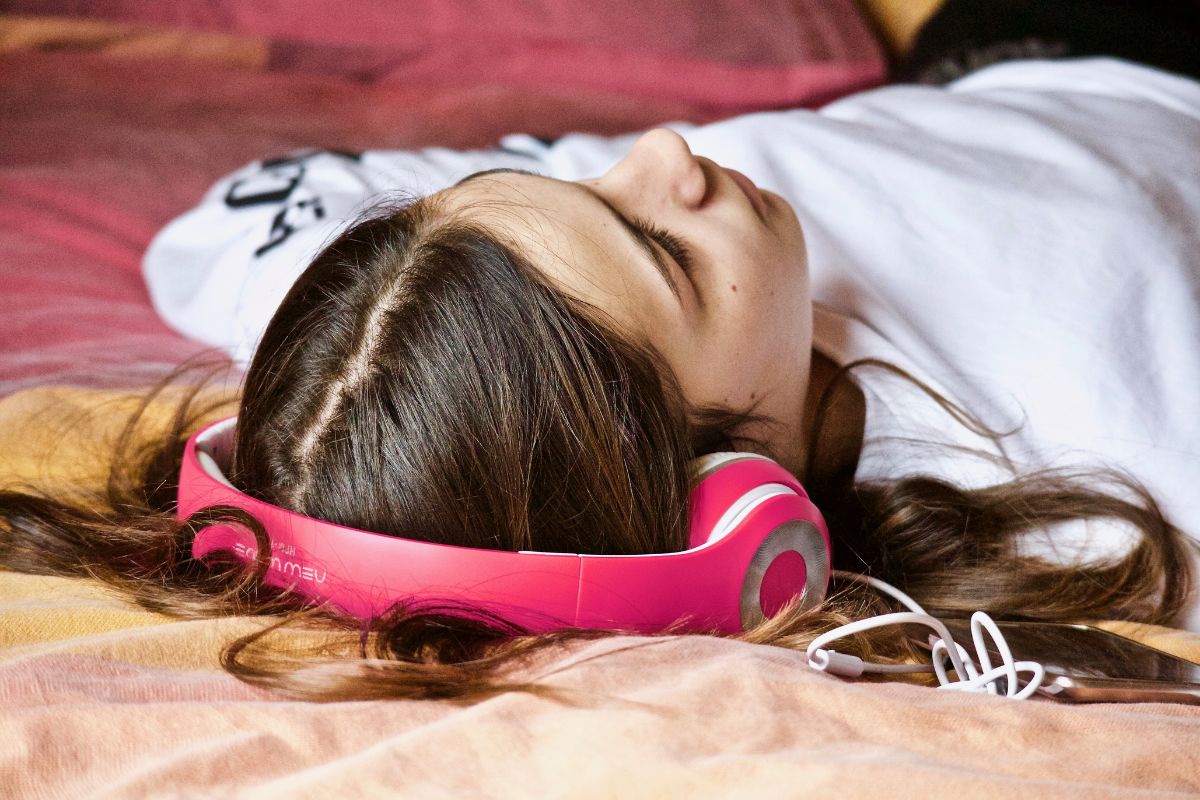A Survival Guide to Parenting Teenagers With ADHD
Struggling with parenting an ADHD teenager? Here’s a no-fluff survival guide with practical tips for school, social life, and managing ADHD symptoms.

Parenting a teenager with ADHD means getting to know a brain that works differently and figuring out how to meet them where they are, not where you expected them to be. If you’re here, chances are you're navigating the unpredictability, the missed assignments, the impulsivity, and maybe even some tension at home. Let's talk about what this actually looks like and how you can better work with your child, not against them.
What ADHD Looks Like in Teens (hint: it's not always obvious)
ADHD, or attention deficit hyperactivity disorder, doesn't always look like bouncing-off-the-walls hyperactivity. Especially in girls, ADHD symptoms often fly under the radar. While a teen boy with ADHD might be more outwardly impulsive or energetic, a teen girl with ADHD could appear more forgetful, emotional, or withdrawn. Think constant daydreaming, zoning out in class, losing track of things, or being quietly overwhelmed.
Because ADHD often shows up differently across genders, many teens with ADHD don't get diagnosed until school gets harder, usually around high school. Suddenly, executive function skills like planning, prioritising, and following through become essential, and that's when it all starts to unravel.

School Struggles and the Executive Function Nightmare
Parenting a teenager with ADHD during the school years can feel like a lot. You're watching your kid, who you know is smart, struggle to get assignments in on time, taking longer than their peers to study or even remember they have that maths test. Sound familiar?
This isn’t about laziness. It’s a challenge with executive function: the part of the brain that helps with organising, managing time, and staying on task. Teens with ADHD often miss details, procrastinate until the pressure is unbearable, or freeze completely. ADHD paralysis is a real thing, and prevents individuals from completing certain tasks... It's like a mental block.
So what can help? Start by letting go of the dream that they'll suddenly become a super-planner overnight. Develop a plan with your teen. Break big tasks into tiny steps. Aim to complete one thing at a time. Use reminders, schedules, phone alarms, whatever sticks. Most importantly, keep it judgment-free. A common symptom is that if they don't see it, it doesn't exist. So encourage your child to use more visual representations.
ADHD Affects Your Teen Socially Too
Teens with ADHD don't just struggle academically. Friendships can be tough. Impulsivity and poor social skills can lead to misunderstandings, outbursts, or feeling left out.
A teenager with ADHD might interrupt conversations more frequently, miss social cues, or come on too strong. That can make it harder to maintain friendships, especially during adolescence, when social life is everything.
Parents can support their teen by talking through misunderstandings and helping them learn how to apologise and move forward. No one likes lectures, so make it fun if you can.
The Emotional Whiplash
Emotional regulation is another area where ADHD affects your teen. You might notice times when your teen has zero chill one minute and is totally fine the next. One of the symptoms of ADHD is heightened emotions. This means that the highs are high and the lows are low.
This can show up as angry outbursts, tears over small stuff, or mood swings that make your head spin. Combine that with hormonal changes and the stress of becoming more independent, and it’s a lot.
Give them space to cool off, but circle back and talk to your child when things are calm. Help them name what they’re feeling, and encourage healthy outlets: exercise, journaling, or just venting.
What ADHD at Home Can Look Like
Here’s where the day-to-day reality hits. Living with ADHD isn’t just about what happens at school, it shows up all over the place at home too. You might notice your teen with ADHD constantly leaving things behind, forgetting basic instructions, or walking into a room and immediately forgetting why.
Teens with ADHD often have chaotic bedrooms, lose their chargers every other day, or start five tasks at once and finish none. They might talk nonstop, interrupt others, or get easily overstimulated by noise or clutter.
It’s not about laziness or defiance. ADHD affects your teen in subtle, tiring ways, and it can drain everyone in the house. Set up some structure, but be flexible. Offer gentle reminders, not lectures. And expect to repeat yourself more times than you'd like.
Your teen just started driving? That's a whole new challenge. Drivers with ADHD are more prone to distractions and delayed reactions. If your teen is learning to drive, it’s important to have honest convos about safe driving habits. Be careful with loud music, reduce distractions, and give them shorter trips until they build confidence. Keep it calm and build their awareness over time.

Helping Your Teen Learn to Manage ADHD and Thrive
Here’s the thing: your teen isn't broken. But they might need extra support in places other kids don’t. Parenting teenagers with ADHD means learning how to pick your battles, laugh when things get weird, and always circle back to connection.
Some tips for parenting a teen with ADHD that actually work:
- Work with your child, not against them. Let them be part of the solution.
- Keep routines simple, visual, and consistent.
- Give instructions one step at a time.
- Build in breaks, movement, and downtime.
- Celebrate progress, not perfection.
- When in doubt, lower the bar (and your voice).
Getting a Diagnosis (and why it matters)
If your teenager with ADHD hasn't been officially diagnosed, and you’re seeing signs like inattention, hyperactivity, or impulsivity, it might be time to chat with a health professional or pediatrician. Girls especially are often missed, so don’t assume it's just "normal teen stuff."
An accurate diagnosis opens the door to ADHD treatment options, which might include therapy, coaching, or medications like Ritalin, Vyvanse, Concerta, or other stimulant and non-stimulant options. And truthfully, it might take a few tries to find what really works. Many teens with ADHD need to experiment with dosage, timing, or even switch meds before finding the right fit. That’s normal.
If you decide to go down the medication route, work closely with a child and adolescent specialist who understands ADHD and its treatment. The goal isn’t to turn your kid into someone else, it’s to help them manage their ADHD symptoms so they can get through their day with a bit more ease.
What If They’re Struggling With More Than Just ADHD?
Some teens with ADHD also deal with anxiety, depression, or low self-esteem. The risk of developing depression is higher in teens with ADHD, especially if they feel like they're always messing up or can’t keep up with their peers.
If you're seeing warning signs, get professional help early. Therapy can help your teen make sense of their emotions, build coping skills, and improve relationships with peers and family.
Parenting Teenagers With ADHD
Let’s be honest. Parenting a child with ADHD is exhausting. There are days you’ll feel like you’re nailing it and days when it feels like everything’s on fire. That’s the reality. But adversity builds character, and you guys will get through it.
This isn’t about fixing your teen. It’s about helping them learn to manage the way their brain works and making home the safest place to do that. Support your child, set clear boundaries, and yes, take breaks for yourself.
Ditch the comparison game. You’re raising a neurodivergent teen, so don’t expect typical rules to work. Many other parents are also just trying to figure it out as they go.
Don't be afraid to learn more about ADHD. You may not get it all right now, but do some online research, read a book about it or simply talk to other parents who may be going through the same thing.
In the end, raising children with ADHD isn’t about perfection, it’s about progress. Celebrate the small wins, keep showing up, and remember: your teen is still becoming who they are, with or without ADHD.
If you want to connect with other Aussie parents who get it, join the Fawn Meets community - with real stories, expert-guided tools, and 24/7 community chats.
Read more
Real connection. Honest chats. Local support.
You’re on the list — check your inbox for your private invite to join the Fawn Meets community.




